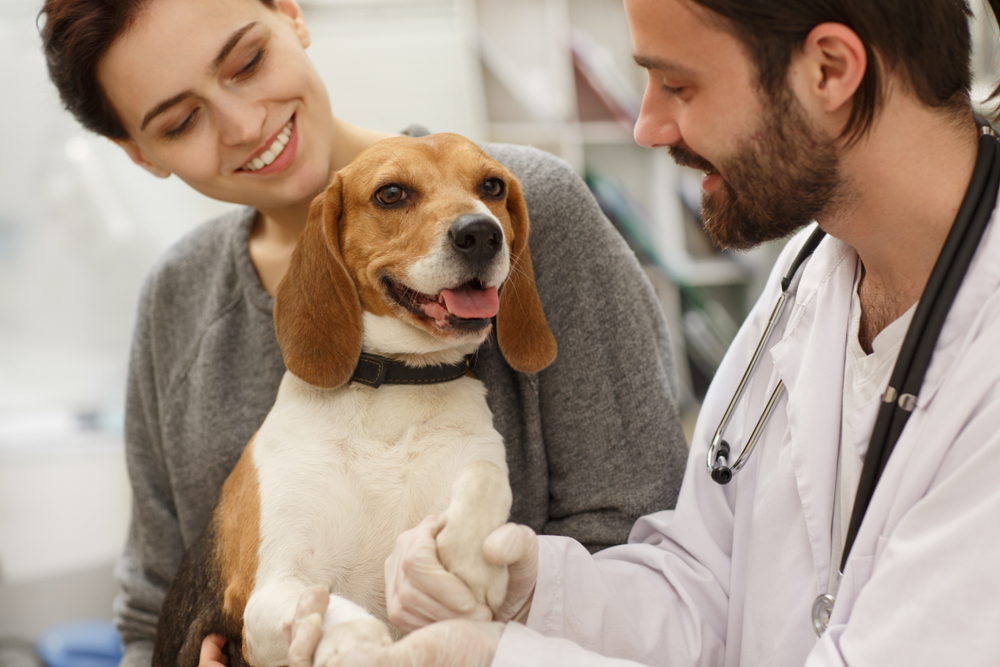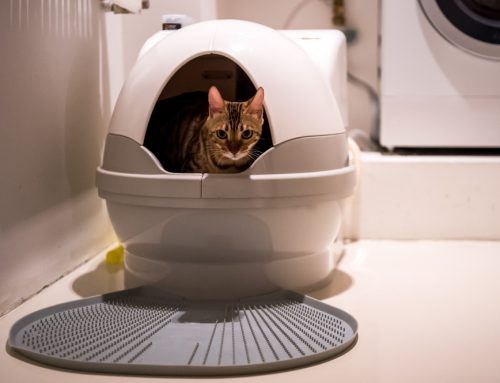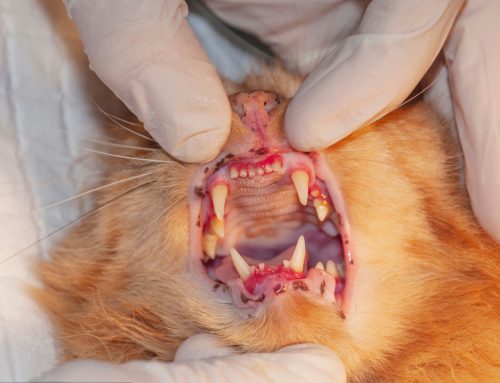Regular veterinary wellness visits—and not only visits when your pet is sick—are fundamental to their health and general well-being. Annual or biannual visits give your veterinarian the opportunity to track your pet’s health and identify problems early. Learn what a veterinary wellness visit entails, and its importance to your pet’s health.
Thorough physical exam
Our Best Friends Veterinary Care team will first perform a thorough nose-to-tail exam on your pet and note any problems or abnormalities. The data from this exam will be noted in your pet’s record and used as a baseline for future visits.
Every wellness visit includes an evaluation of your pet’s body systems, including:
- Vital signs — Vital parameters include checking for a normal heart rate, respiratory rate, and body temperature.
- Weight and body condition scoring (BCS) — A weigh scale provides an actual number, while BCS offers a subjective assessment of a pet’s shape. Together, weight and BCS evaluate your dog or cat’s fitness and are useful tools in weight management. Based on this information, your veterinarian may recommend specific dietary and exercise programs.
- Eyes and ears — Vision and hearing impairments can greatly affect a pet’s life. Using an ophthalmoscope and otoscope, our veterinarian can determine whether your pet’s vision and hearing, respectively, are normal. Common eye problems include cataracts and corneal disease, while an ear exam may reveal that yeast, bacteria, or mites are present. The sooner these are treated, the more quickly your pet will feel comfortable again.
- Mouth and teeth — Broken teeth, tartar, halitosis, and periodontal disease can lead to pain, difficulty eating, and behavior changes. Dental disease can also result in bacterial spread to other body systems. Research has shown that regular, professional dental cleanings under anesthesia can increase a pet’s life expectancy.
- Heart and lungs — Our veterinarian will listen for heart murmurs and arrhythmias with a stethoscope, and check pulse quality. Some murmurs and arrhythmias are considered normal and do not require treatment, while others can indicate cardiac disease and the need for further work-up. The veterinarian will also listen for abnormal lung sounds, which can indicate allergies, asthma, and other respiratory diseases. Many cardiac and respiratory diseases in pets can be treated, so wellness exams are an opportunity to recognize potentially serious problems and start treatment early, which can provide a more successful outcome.
- Gastrointestinal system — By palpating your pet’s abdomen, the veterinarian can detect changes such as an enlarged liver or masses that require further evaluation. A digital rectal examination will be performed to check for enlarged anal glands, rectal tissue changes, and prostate disease in male dogs.
- Orthopedics — Manipulating your pet’s limbs enables our veterinarian to assess their range of motion and identify pain and structural changes, such as ligament and tendon injuries. They may suggest additional diagnostics, such as X-rays, if they identify any problem. Treatment may include therapeutic exercise, and medication to improve your pet’s comfort and activity levels.
Vaccinations for dogs and cats
Vaccinations that immunize pets against deadly viral diseases must be boostered annually to remain effective. There are two categories of vaccines—core and non-core (i.e., optional).
- Core vaccines — These vaccines are considered essential for every pet regardless of where they live, because they protect against ubiquitous diseases. Canine core vaccines include canine distemper virus, canine parvovirus, type 2 canine adenovirus, and rabies. Feline core vaccines include feline viral rhinotracheitis (i.e., herpesvirus), calicivirus, feline panleukopenia (i.e., feline parvovirus), rabies, and feline leukemia virus.
- Non-core vaccines — These optional vaccines protect against regional or localized diseases and are recommended based on the pet’s lifestyle and exposure. For dogs, these include Bordetella bronchiseptica, Lyme disease, canine influenza and leptospirosis. Optional vaccines for cats include Bordetella bronchiseptica and Chlamydia felis.
At Best Friends Veterinary Care, we will evaluate your pet to determine which optional vaccines are appropriate. For example, a dog who stays in boarding facilities will require Bordetella, while a dog who hikes outdoors should be vaccinated against Lyme disease. Also, if you’re planning to board your pet or travel with them over the holidays, we can advise you on the required vaccinations and paperwork.
Parasite screening and prevention for pets

Flea, ticks, roundworms, and heartworms cause misery for dogs, cats, and humans. At a wellness visit, your pet can be tested for heartworms using a rapid blood test, and for roundworms by examining a fecal sample. Identifying these pests early can spare your pet from lung and cardiac disease caused by heartworms, and anemia, weight loss, and diarrhea from roundworms. Once your pet is parasite-free, they should begin a year-round parasite prevention protocol to remain free. Multiple formulations are available, so you can select the product that best suits you and your pet.
Our Best Friends Veterinary Care team is serious about wellness and preventive care. Schedule a wellness appointment with us for your favorite furry family member or contact us if you have questions about wellness-related issues.








Leave A Comment